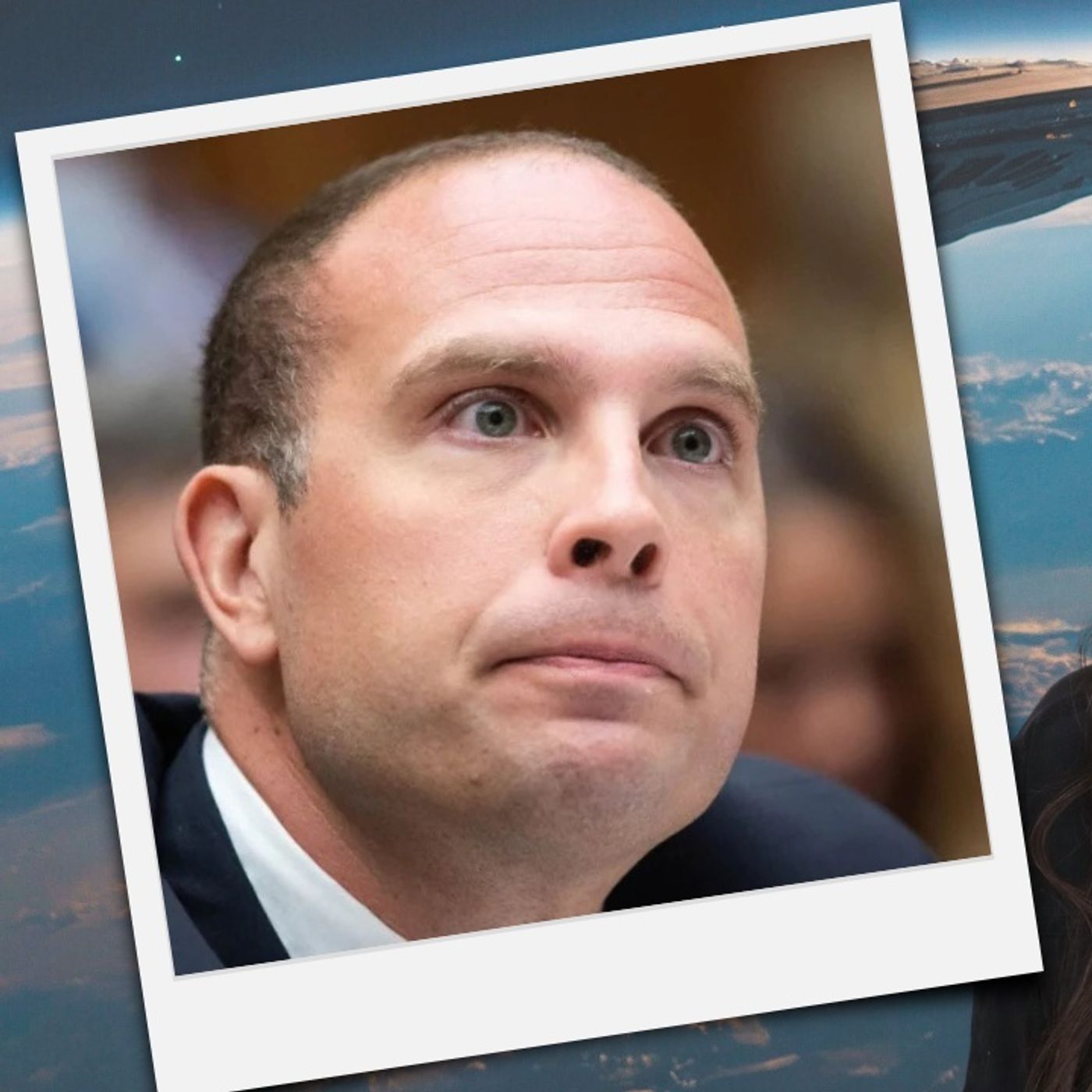Show Notes
BREAKING: Grusch Files Massive Lawsuit Over Privacy Violation UFO whistleblower David Grusch is fighting back with a massive $2.5 million lawsuit against Virginia authorities who allegedly leaked his private mental health records just weeks after his explosive Congressional testimony about secret government UFO crash retrieval programs and alien bodies.00:00 - Intro
00:38 - David Grusch Lawsuit UPDATES
18:24 - AARO UFO Video RELEASE
28:54 - Outro and Credits
To see the VIDEO of this episode, click or copy link - https://youtu.be/9-hfn5yXuJA?si=Zn0ZTB2Iwwb84IHm
Visit my website with International UFO News, Articles, Videos, and Podcast direct links -www.ufonews.co
❤️BECOME A UFOLOGER INSIDER ➔ https://www.patreon.com/paradigm_shifts/membership
Become a supporter of this podcast: https://www.spreaker.com/podcast/strange-and-unexplained--5235662/support.
Show Transcript
Just days after Grusch testified to Congress back on July 26 of 2023, Intercept journalist Ken Klippenstein decided to file a Virginia Freedom of Information Act request for law enforcement records about Grusch's background. Now Klippenstein later admitted he got "vague tips" from multiple people in the intelligence community, described as "intel people" and "rank and file" sources, telling him to "look into Grusch's background" and specifically directing him toward police records. Think about the timing here - within 96 hours of congressional testimony that embarrassed the Pentagon, intelligence community sources are already working to undermine the witness by pointing journalists toward his most vulnerable personal information. Two weeks later on August 9th, The Intercept published the most devastating details of Grusch's October 2018 mental health crisis, including his wife's 911 call reporting him as drunk and suicidal, specific quotes from his involuntary psychiatric commitment proceedings, and his ongoing struggles with PTSD and depression from his Afghanistan service. The article even included Grusch allegedly telling his wife "I've just been waiting for you to kill me" when she suggested he seek help for alcoholism. The timing was surgical - destroy the messenger's credibility right after he delivers an inconvenient message. Now here's what makes this legally explosive and potentially a game-changer for whistleblower protection. Virginia law explicitly requires those involuntary detention records to remain confidential under Virginia Code Section 37.2-818 and specifically exempts them from Freedom of Information Act disclosure, but somehow they ended up published in detail in a national publication anyway. This isn't some gray area of the law - the statute has crystal clear language protecting "recordings, relevant medical records, reports, and court documents pertaining to hearings" related to temporary detention. Grusch's legal team, led by former Intelligence Community Inspector General, argues this violates both state privacy tort law and constitutional privacy rights. Legal experts are calling his case exceptionally strong because Virginia has a robust history of protecting medical privacy, with precedents like Fairfax Hospital v. Curtis establishing that healthcare providers owe patients a duty not to disclose treatment information, creating tort liability for violations. The 2023 Parker v. Carilion Clinic decision confirmed Virginia's privacy protections even without federal HIPAA private causes of action. But the sheriff's office isn't going down without a fight, and their defense strategy reveals how government agencies try to wiggle out of privacy violations. They're trying to get the case thrown out before it even starts with something called a Plea in Bar, basically arguing the lawsuit has fundamental legal problems that should kill it immediately. They're probably claiming they had legal immunity to release the records, or that the information wasn't actually protected medical information but just regular law enforcement documents, or maybe even that Grusch waited too long to file the lawsuit under statute of limitations. The distinction between whether these were medical records versus law enforcement records becomes crucial here, because while medical information is heavily protected, police reports often have much weaker privacy protections. The sheriff's office is likely arguing they were just responding to a legitimate FOIA request for police records, not illegally releasing confidential medical information. The judge postponed the decision on this motion after a June 2nd hearing and scheduled another hearing for August 6th to address what's called a de-murrer - another type of motion that says even if everything Grusch claims is true, he still doesn't have a valid legal case. This shows we're still in the very early procedural stages where the court decides if the case can even move forward to examine the actual facts of what happened. But the fact that the judge is taking time to consider these motions rather than immediately dismissing them suggests Grusch's legal arguments have merit, which should worry other government agencies that might be using similar tactics against whistleblowers. This case has implications that go way beyond UFOs or even David Grusch personally. The sophisticated coordination between intelligence community sources directing media attention to Grusch's most vulnerable personal moments while maintaining plausible deniability (like in the movie independence day) through legitimate FOIA processes shows exactly how modern character assassination campaigns work in the digital age. It's not crude intimidation or obvious harassment - it's surgical strikes using the legal system and cooperative journalists to destroy credibility while keeping government hands technically clean. The intelligence community doesn't directly leak the information, they just point reporters toward the right records requests, then sit back while the media does the dirty work. Whether Grusch's UFO claims are true or not becomes almost irrelevant - what matters is that his treatment reveals the persistent challenges facing anyone who tries to blow the whistle on sensitive national security topics. If a decorated intelligence officer with official whistleblower protections can have his most private medical struggles weaponized against him within days of testifying to Congress, what does that say about the reality of whistleblower protection in America? The $2.5 million lawsuit represents more than just financial compensation for Grusch - it's an attempt to establish legal boundaries that could protect future whistleblowers from similar character assassination campaigns, and the outcome will likely influence whether other insiders are willing to risk their personal privacy and mental health history becoming public fodder for speaking truth to power. But also 2.5 million dollars in the pocket doesn’t seem so bad either.
.png)


Comments & Upvotes